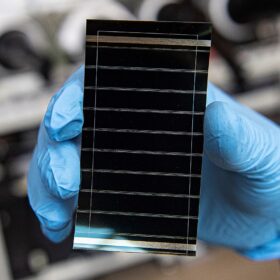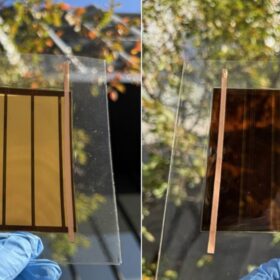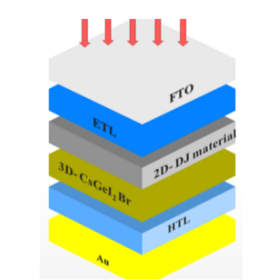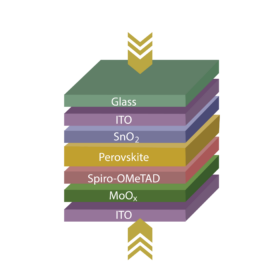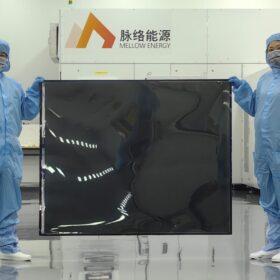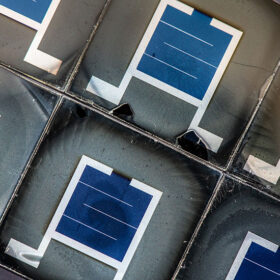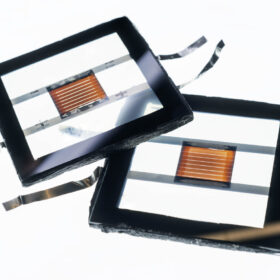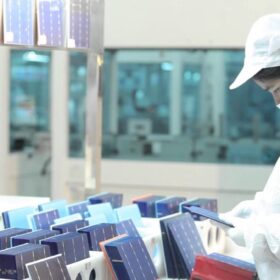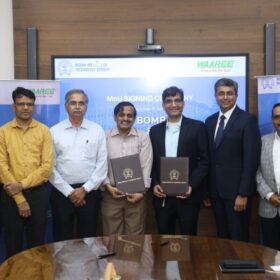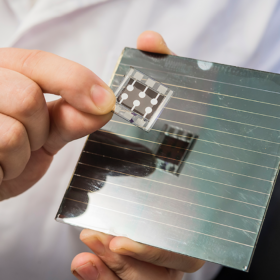Perovskite tandem provider integrates with existing solar manufacturing lines
While many perovskite developers pursue a 2-terminal format, which poses design and production constraints, Caelux uses a 4-terminal approach that bypasses technical challenges.
Scientists unveil durable perovskite PV modules with carbon nanotube electrode
Japanese researchers have engineered a 100 cm² perovskite solar cell module featuring a robust single-walled carbon nanotube (CNT) electrode to improve durability and enable dual-sided light absorption.
Indian scientists design 31.16%-efficient 2D-3D perovskite solar cell
Scientists in India have simulated a novel perovskite solar cell that combinies a Dion-Jacobson 2D layer with a 3D halide perovskite. The design showed improved stability compared to reference cells without the DJ-2D layer.
Chinese researchers build 4T perovskite-CIGS tandem solar cell with 29.36% efficiency
Scientists in China built a four-terminal perovskite-CIGS tandem solar cell based on a top semi-transparent perovskite device with an efficiency of 21.26% and a high bifaciality factor of 92.2%. They used a solvent-annealing strategy to produce a perovskite film with full coverage, larger grains, superior crystallinity and free of detectable lead iodide impurity.
Chinese startup unveils flexible perovskite photovoltaic modules with 15.6% efficiency
Mellow Energy claims its ML-Flex panel is currently the world’s largest flexible perovskite solar module. Available in five versions with power output ranging from 260 W to 300 W, the module measures 1,200 mm x 1,600 mm and weighs only 2.04 kg.
U.S.-made perovskite-silicon tandem solar modules could be produced at around $0.35/W
Techno-economic analysis conducted by NREL researchers has shown how perovskite-silicon tandem solar modules could currently hardly compete in cost with incumbent PV panels. Production costs for U.S.-made tandem products were found to range between $0.29/W and $0.42/W, with module efficiencies ranging from 25% to 30%.
Field testing shows perovskite solar modules can retain 78% of their initial efficiency after one year
Researchers from Belgium and the University of Cyprus have completed outdoor stability tests of perovskite solar mini-modules providing two-years of data on stability performance. The tests showed that the modules’ performance loss rates during the burn-in period of perovskites ranged between 7% and 8% per month.
JinkoSolar claims 33.84% efficiency for perovskite-silicon tandem solar cell
The result was confirmed by the Shanghai Institute of Microsystem and Information Technology under the Chinese Academy of Sciences (CAS).
Waaree Energies, IIT Bombay collaborate to drive perovskite solar R&D
Waaree Energies will support creation of an advanced fabrication and characterization setup for high-efficiency perovskite solar cells at IIT Bombay.
Perovskite solar cell achieves higher stability with new tin oxide layer
Using atomic layer deposition, a research team from the City University of Hong Kong has created an an oxygen-deficient tin oxide layer to replace the more common fullerene electron transport layer in perovskite solar cells. The result is a 25%-efficient device that is able to retain around 95% of its efficiency after 2,000 h.
